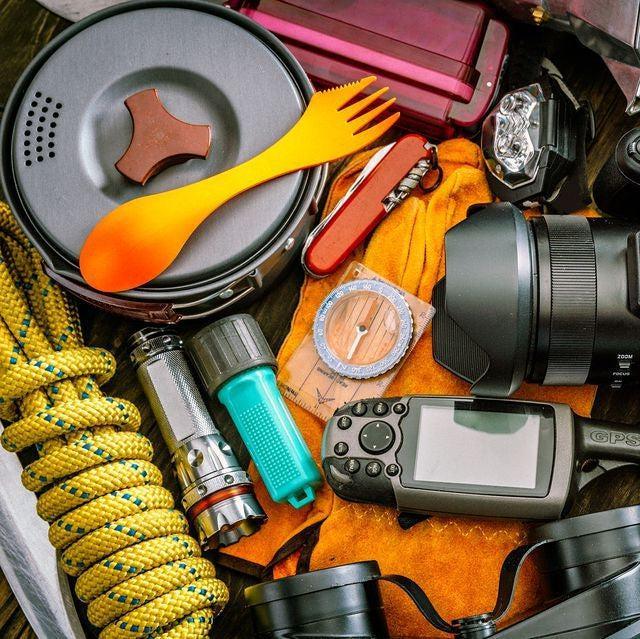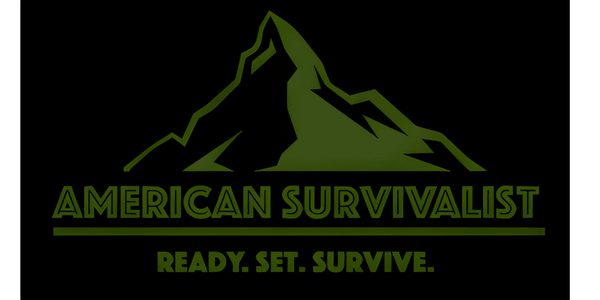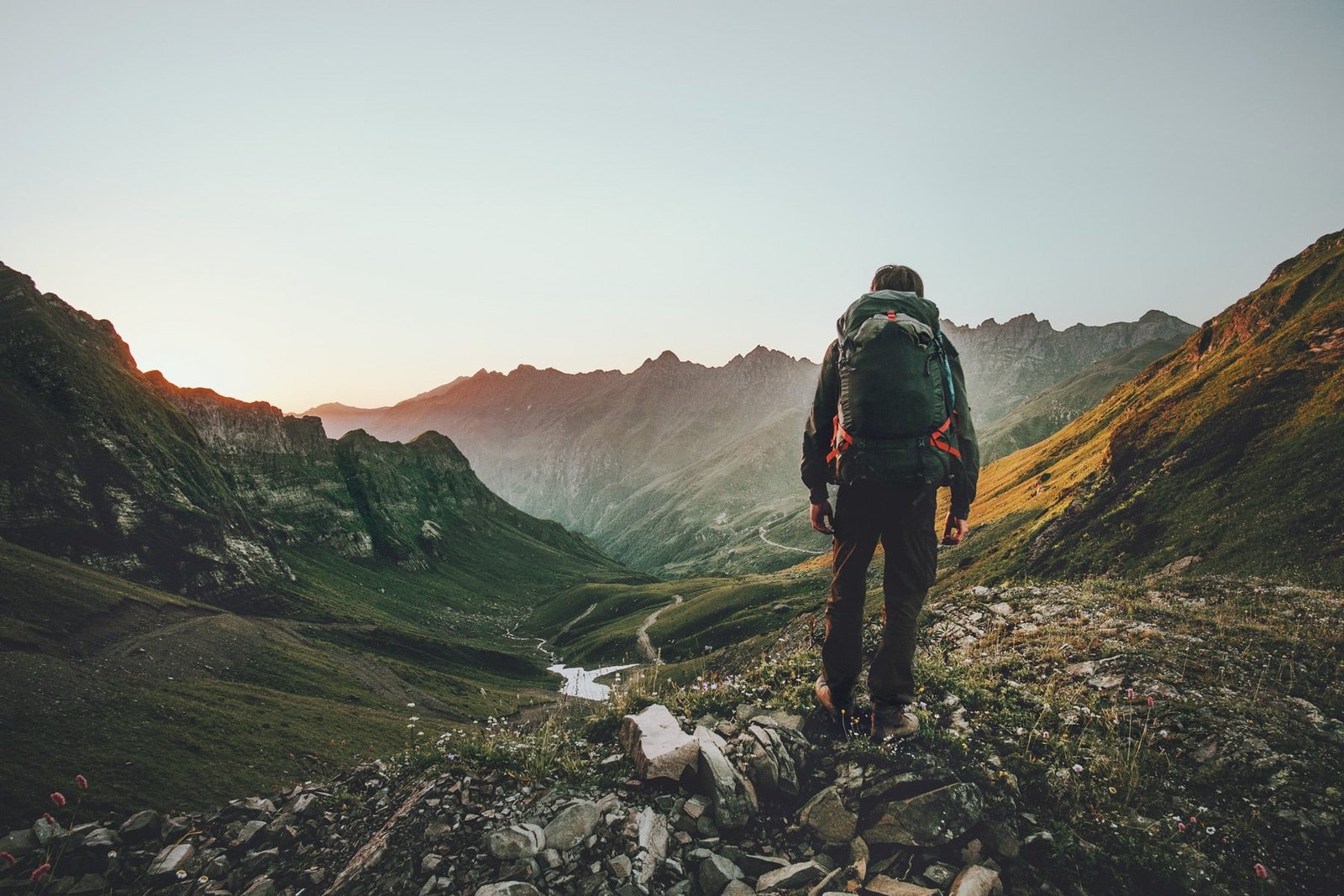50 High Value Items To Stockpile For When SHTF
Share
Stockpiling necessary supplies is at the very core of prepping. Most of us start out by trying to build a stockpile of food to see us through an emergency and will probably still be stockpiling food when the SHTF. But stockpiling food isn’t all there is to be ready for a disaster. There are many other things we need and use on a day-to-day basis.
Stockpiling food, without bothering to stockpile these other necessary items might not guarantee our death, but it will sure make our lives more uncomfortable. Too much of that discomfort could lead to death; perhaps not directly, but by permitting weakness and disease to bring us to an end.
There are literally hundreds of things that we could use in a post-disaster world; more than can fit in this list. But the items I’ve listed below are probably the most important things to include in your stockpile, either for your own personal use or to use as barter goods.
Disposable Butane Lighters – Fire is one of the things we use the most in a survival situation. Even though it is not considered one of the top three survival needs, it is useful for all three of them. It’s much easier for people who aren’t skilled at starting fires to start them with a disposable lighter than to try and do it any other way.
Waterproof Matches – The waterproof match is the standard fire starter for use in a survival situation. While many people have switched over to butane lighters, matches are still useful. Be sure to get the strike anywhere kind.
Fire Accelerants – Commonly referred to as “fire starters,” chemical fire accelerants or tinders work to get the fire from your matches or lighter into the larger kindling, so that your fire can keep burning. Make sure you have a good stock, as this is essential with damp wood.
Water Filters – Water purification is essential to survival, as water that has microscopic pathogens can spread disease and even kill us.
If you use a filter for purifying water, be sure to have plenty of them.
Firewood – Many preppers are planning on heating their homes and cook with a wood fire in a post-disaster world; but few have enough firewood to do that. It takes four to six cords of firewood to heat a home through the winter.
Salt – Salt is not only essential for survival, it’s nature’s number one food preservative. Yet it can be extremely hard to come by. if you’re going to preserve food in a post-disaster world, you’d a better plan on having plenty of salt on hand.
Canning Jar Lids – I’m assuming you have canning jars; but how many lids do you have? They’re not considered reusable, so you’d better have plenty.

Batteries – Ok, batteries aren’t really a survival necessity; but we’ve got lots of things we use every day, which are battery operated.
Stocking batteries, especially AA and AAA sizes, will make your life in a post-disaster world much better.
Toilet Paper – If you want to see something that people will kill for in a post-disaster world, I think this is it… especially women. Do you have any idea how much TP your family goes through?
Personal Hygiene Supplies – While we’re talking about TP, we don’t want to forget things like soap, toothpaste, and shampoo. Cleanliness in a post-disaster world is important as a means to help combat the spread of disease.
Plastic Bags – Nobody is going to be making plastic, let alone plastic bags in a post-disaster world. Yet they are something we use all the time. If you are planning on using a bucket toilet, you’re going to need a lot of bags just for that. But you’re going to need them for a lot of other things too.
Ammunition – This is probably one you’ve already thought of, but it’s so important, it bears mentioning. Make sure you’ve got enough for all the calibers you use, as well as the most common calibers out there.
Alcohol – Probably the best barter item there is.
Tobacco –The second-best barter item there is.
Antibiotics – If you want to keep your family healthy, I’d recommend putting in a good stock of the most common antibiotics. You can buy these over the counter in Mexico, without a prescription. Make sure you print out information on dosages and to tell you which antibiotics are the best to use in different situations.
Over the Counter Medicines – Self-diagnosis and treatment is dangerous; but sometimes it’s all we have available to us. Having a good assortment of over the counter medicines will make it possible to treat at least the symptoms of common ailments.
Prescription Medicines – If you have family members that need maintenance doses of prescription medicines for chronic conditions, you need to have a stock of those on hand for them. If you can’t get that stock, then look for natural alternatives which will keep them going.

First-aid Supplies – If you ever want to see an environment ripe for injuries, just look at any place that has been hit by a disaster. You and your family will be doing things you normally wouldn’t do, many of which can lead to serious injuries. Be prepared for more than scraped knees and cut fingers; be prepared for treating major injuries.
Seed – If the situation continues, you’re going to have to start producing your own food. That means growing a vegetable garden, amongst other things. Have lots of seed on hand, so that you can plant a big garden.
Gardening Chemicals and Fertilizer – There are a number of common chemicals used for gardening, as well as common fertilizers. You’ll need all of that if you’re hoping to get a bountiful harvest.
Fishing Gear – Fishing is probably the easiest way of harvesting food from nature. There’s just one problem with it, I have yet to meet a fisherman who doesn’t lose hooks, lures and other gear on a regular basis. So that means you’d better have plenty, so that you can keep on fishing, even after losing your favorites.
Fuel – Ok, this one is a bit tricky, as gasoline doesn’t store easily. It tends to lose its potency pretty quickly. But then, even less potent gasoline is better than no gasoline. And there are additives you can get, which will help that gasoline to last longer.
Repair Parts – If you’ve got gear that you are going to use to survive, you had better have some way of repairing it. That includes parts for just about anything you are planning on using as part of your survival. For example: If you’ve got some of those old Coleman lamps, which can burn gasoline, you should have rebuilt kits for the air pump.

Hand Tools – We are so used to using power tools for just about everything, that many people don’t have hand tools anymore. Do you have a crosscut saw? How about a hand-crank drill? You’re going to need them, if you can’t connect your power tools.
Honing Stones – To keep knives and other sharp tools sharp.
Rope – Always useful. We tend to stock paracord, which is excellent; but you might want some heavier rope as well.
Sewing Supplies – There probably won’t be any shortage of clothing lying around in a post-disaster world, but there will be of sewing supplies. You’re going to need to be able to fix clothing, as well as taking it in as you lose weight.
Sturdy Shoes – Good shoes are important, and by good I mean something that is rugged and will hold up, giving your ankles support. Most of the shoes we wear today won’t do that; they’re more decorative than anything else.
Rugged Clothing – Rugged jeans, flannel shirts and other work clothing are going to be useful as well. The stuff you wear to the office just isn’t going to make it when you’re chopping wood.
Work Gloves – This is one thing you don’t want to try sewing yourself. Nor do you want cheap work gloves to try and do hard work in. Get several pair for each member of the family, especially those who do the hard physical work of survival.
Vitamins – Your diet probably won’t be well-balanced in a post-disaster world. It will be mostly carbohydrates and fats, with a little bit of protein thrown in. The micronutrients that nutritionists tell us we need will be notoriously absent. Good vitamins can help overcome this problem, helping you to remain healthy.
Reading Glasses – Even if you don’t wear glasses now, that doesn’t mean you never will. Keeping a variety of reading glasses around, in different magnifications, may help you to be able to do things as you age, that you wouldn’t otherwise be able to do.
Antibacterial Hand Cleaner – This is a good one to help prevent the spread of disease. Clean hands aren’t going to contaminate food or contaminate other people.
Spices – One of the best ways of getting the most out of the food that you do have available to you is to change its flavor. This can be especially good when you have children, who can be notoriously difficult when it comes to unfamiliar foods. Disguising what it is and making it taste similar to something they like is one of your best ways of dealing with this.
Bullion (also known as soup stock) – Anything can be turned into a soup or a casserole, if you have soup stock to go with it. Generally speaking, having beef and chicken flavors is enough, as they go with everything else.
Flashlights – There’s no such thing as enough flashlights. They don’t last forever and you really can’t fix them.
Leather and Leather Stitching Supplies – Our ancestors used leather for a wide variety of things, like making shoes and harnesses. We’ll need it for making a variety of repairs, like resoling shoes.
Lime – This is one of those things that people forget about. Lime is used in outhouses to help keep the odors down, as well as reducing the population of insects.
Wicking – If you’re going to make candles, you’re going to need wicks for them. While just about any cotton string can be used for that, a cotton string isn’t all that common anymore. A few yards of wicking doesn’t cost all that much and it will allow you to make your own candles.

Candles – Speaking of that wicking, it would be a good idea to have a bunch of candles, already made, on hand.
I prefer making mine in spaghetti sauce jars and using multiple wicks.
That produces more light, so I can work by candlelight if necessary.
Oil-burning Lamps – A good oil-burning lamp will work off of just about any flammable liquid, providing you with light. The best is oil, of any sort; but if you have something else, they’ll burn that too. Just try it outside first, to make sure it’s not going to blow up the lamp.
Insect Repellant – Nobody likes becoming the mosquito’s dinner. Yet there are more of them in the world than there are of us. Good idea to be ready to deal with them and keep them off your body.
Pest Control – Speaking of dealing with insects, it’s a good idea to be able to kill them too, as well as trapping mice and other pests. Don’t skimp, as you won’t be able to run back to the local store for more.
Cleaning Supplies – Yeah, who thinks about stockpiling cleaning supplies? But if you want to keep the cockroaches and ants out of your home, you’re going to want to have the necessary cleaning supplies to keep your home clean. This is important for fighting disease as well.
Aluminum Foil – We talk about using aluminum foil for cooking in a survival situation and most people include it in their survival kit. But how many of us have extra aluminum foil back home, to use for cooking food in the wake of a disaster?

Charcoal or Propane – Whatever fuel your barbecue grille runs on, be sure to have plenty on hand.
That grille is going to be your first alternate stove.
You may move to a fire pit later; but in the first month of surviving in the post-disaster world, that grille is it.
Cast-iron Pots – Okay, this really isn’t a supply; it’s more like gear. But if you’re going to cook on your barbecue grille, it would be a good idea to have cast-iron cookware on hand. That grille is going to be a bit rough on your Teflon cookware.
Wind-up Mechanical Clock – Maybe you won’t care about what time it is in a post-disaster world and maybe you will. Either way, it might be a good idea to have a clock that you can count on running when there aren’t any batteries to run it.
Chlorine Bleach – Not only is bleach good for cleaning, it’s the easiest means of purifying water. Just add 8 drops of standard (non-scented, non-color safe) bleach to a gallon of water, stir it and allow it to sit for 20 minutes. That will kill all the microscopic pathogens, making it safe to drink.
Hard Candy – Everyone likes something sweet; but unless you’re keeping bees, that’s going to be pretty scarce in a post-disaster world. Hard candies will keep for a long time, can be eaten slowly, extending the enjoyment and can also be used to soothe a sore throat.
So, there you have it; my “top 50” list. However, much you think you need, try to stockpile more; lots more. If you don’t use it yourself, you can use it as barter goods, getting things that you need.


